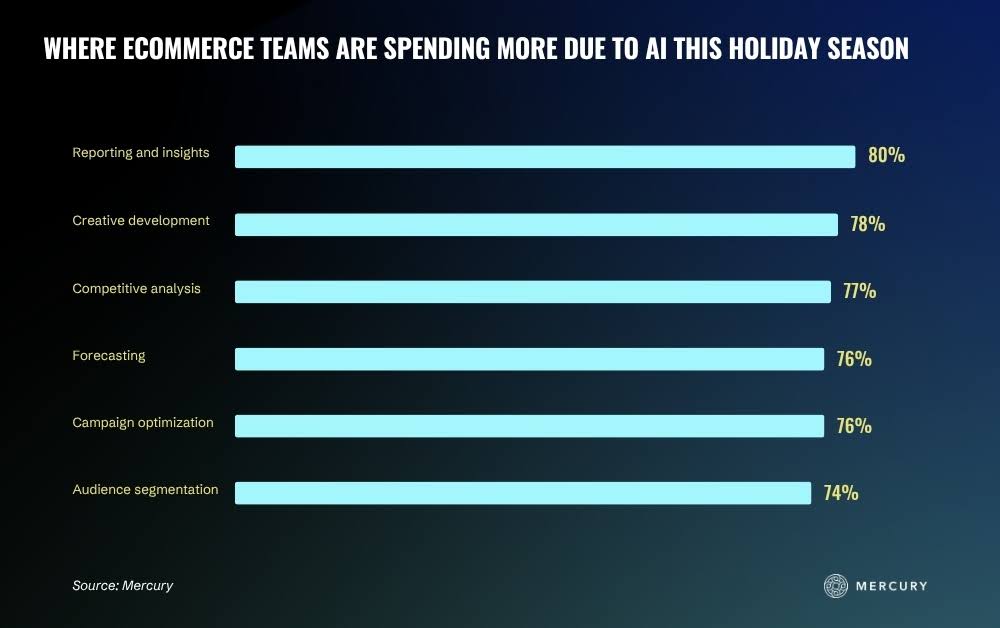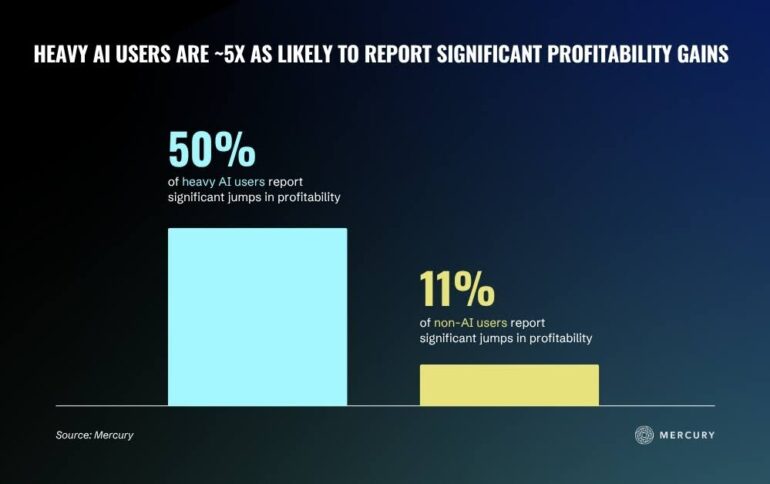New data from fintech Mercury shows AI-generated search driving shifts for ecommerce operations
AI isn’t just reshaping how customers find products—it’s reshaping how ecommerce companies operate. According to new data from Mercury’s 2025 Ecommerce Holiday Report, nearly nine in ten respondents (86%) said they rely on AI extensively or somewhat in their business operations, and the companies leaning on it most are spending more on marketing and producing more content as they use AI to plan and optimize their holiday ad spend. Of note, that acceleration may come with financial implications, as 54% of ecommerce leaders expect to be more reliant on financing and credit this season than in past years. The findings come from Mercury’s survey of 750 U.S.–based ecommerce business leaders conducted in October and November 2025.

As AI compresses planning cycles and raises the pace of experimentation, fintech sits at the center of how merchants scale, spend, and manage risk. This financial shift is happening just as the distribution landscape is being rewritten. With OpenAI enabling users to buy stuff directly through ChatGPT, and Alibaba boosting its commerce unit and new data centers, ecommerce leaders are preparing for a world where large AI will shape product discovery. The optimism is striking: 90% said AI-generated search will positively impact sales this season, while 86% think AI-generated search will help them reach new customers. One caveat is product discovery for smaller brands, which may lack the resources to compete.
Earlier this year, Jensen Huang, CEO of AI behemoth NVIDIA, said, “You’re not going to lose your job to an AI, but you’re going to lose your job to someone who uses AI.” We are in the great age of experimentation with AI tools, where some pilots are failing rapidly but many are beginning to deliver returns on investment, and companies are pushing for gains.
Perhaps a hallmark of the future, this report showed a widening performance gap between AI-forward and non-AI users. Heavy AI users were more than 2x as likely as those using AI a little or not at all to report an increase in profitability. For these merchants, AI isn’t a tool—it’s infrastructure: powering marketing, content production, forecasting, and holiday optimization. This aligns with the recent posture from eBay’s finance leadership, which has framed AI as central to their future business strategy. As global platforms scale compute and build AI-native commerce capabilities, the minimum tech investment required to compete is rising.
This also has big implications for fintechs in the space; merchants will need payment flows designed for conversational commerce, more adaptive fraud controls, and underwriting models that capture the performance lift from AI-driven operations. The shift toward spending more because of their use of AI, especially as digital-ad spend increases among heavy AI users, is also likely to increase demand for more flexible working capital.
—
This article was drafted with the help of generative AI using company-submitted details, then manually edited and carefully reviewed by a human editor before publication.


